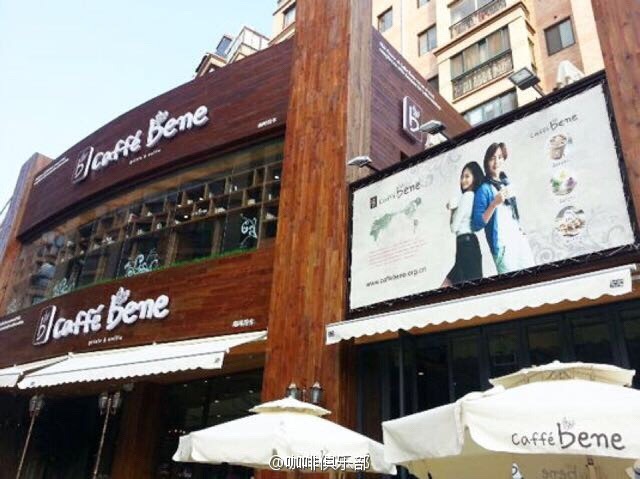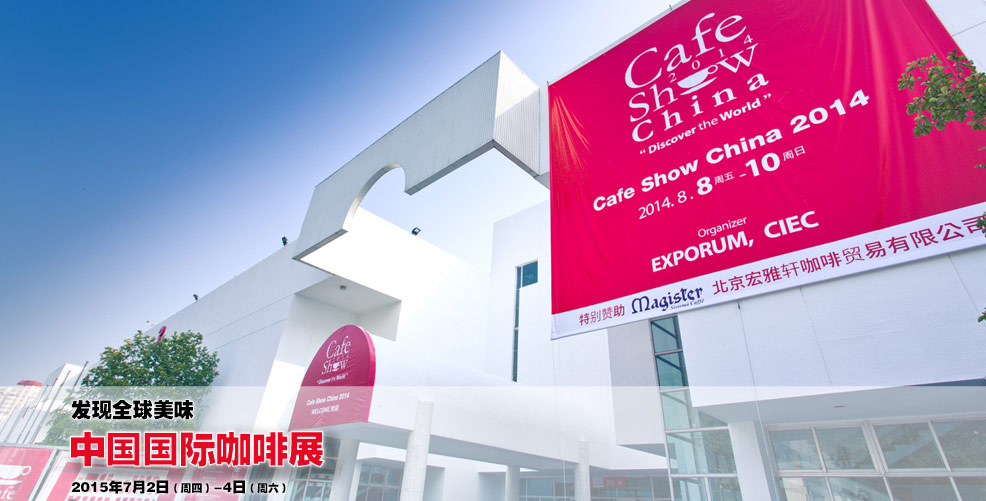A study on the Development trend of Korean Coffee shops in China: the expansion Strategy presents three advantages

Source: Ruiyide 2014.08.19
Posted by: @ Coffee Club
RET China Commercial Real Estate Research Center selected 12 representative coffee shop chain brands in the past 17 years to conduct in-depth research on their development in China. In the country's first launch of the "Korean coffee shop China development trend research report," take you to see the coffee shop chain brand market new forces!

Starbucks is the fastest expanding coffee shop brand in Europe and America. At present, there are 1,164 coffee shops in China, with an average of 77 coffee shops opened every year.
The best brand of Taiwanese coffee shops is Shangdao Coffee, which currently has 1,016 stores and is expanding at an average rate of 59 stores per year.
Among the Korean coffee shop brands, coffee accompanies you most prominently. In just two years after entering China, 407 coffee shops have been opened, and they are still expanding at a high speed. Their expansion momentum even exceeds Starbucks.
Understanding the vacancy in China's coffee market
European and American coffee shop brands target business people, and the consumption characteristics of this group of people are usually mainly take-out, so European and American coffee shop brands take fast-consumption coffee as their market positioning; while Taiwanese coffee shop brands are positioned for leisure, providing folk entertainment such as chess and cards, and consumers usually aim at entertainment activities.
Different from the positioning of European and American coffee shop brands and Taiwanese coffee shop brands, Korean coffee shop brands target friends or families who meet and chat, creating a casual coffee shop atmosphere that is rare among other chain brands, filling this market gap.

From the product point of view, European and American coffee shop brand is aimed at business people, so the product is relatively single, but intimate humanized service is one of its advantages; Taiwanese coffee shop brand is aimed at entertainment and leisure crowd, for convenient diet demand, simple meal and set meal are the main products, and coffee is not its main business; Korean coffee shop brand mainly provides afternoon tea and snacks, and the product richness is improved compared with European and American coffee shop brands.
Among these coffee shop chains, the average number of Korean coffee shop brands is 76, almost double the 41 types of European and American coffee shop brands. In addition to coffee, tea, smoothie, cake, sandwich and other common coffee shop brands, Korean coffee shop brands also add new product lines such as smoothie, soda, ice cream, cereal latte, muffin toast, etc., which not only diversify the categories, but also have a variety of tastes. Rich product choices can meet the taste needs of different customers, which is one of the keys for Korean coffee shop brands to rapidly increase their popularity and enhance customer stickiness.
In addition to making breakthroughs in product richness, Korean coffee shop brands also focus on drinks other than coffee in their product structure, making differentiated competition different from European, American and Taiwanese coffee shop brands, with drinks accounting for 49%.

Flexible and diversified combined franchise
European and American coffee shop brands are jointly operated by several consortia when they are established, so they can expand rapidly with the support of strong capital flow. The average direct sales proportion of European and American coffee shop brands is as high as 92%.
The expansion mode of Taiwanese coffee shop brand is divided by several regional agents, and dozens of agents are set up layer by layer to continue to divide the area for investment promotion and joining. The divided area is even as small as 2-3 agents in the same city. This will not only lead to management difficulties, agency disputes, but also the liquidity of agents directly affect the rights and interests of franchisees, which will lead to future mismanagement, inconsistent food standards and after-sales service problems. Driven by joining factors, the proportion of direct sales of Taiwanese coffee shop brands is only 8%, while the proportion of joining is as high as 87%.
Different from the expansion strategy of the above two types of coffee shop brands, Korean coffee shop brands weigh the proportion of different operation modes well in the expansion process. The proportion of direct sales and franchise is 19% and 60% respectively. In addition, 21% is the proportion of cooperative operation, that is, the management party and franchisee participate in the operation together, and both parties have part of equity.

Korean coffee shop brand expansion strategy has the following three advantages:
1. A certain proportion of direct-sale stores can not only serve as model stores, provide good image display and reference for intended franchisees, but also enhance the brand management confidence of franchisees.
2. The cooperative mode of operation can also provide business opportunities for some franchisees with insufficient funds. Coffee accompany you the minimum investment only 500,000 yuan, in addition to the choice of 49% equity of the cooperative store, coffee accompany you also cooperate with China Merchants Bank, to provide franchisees with franchise stores as financial products credit, through this way can also realize joining. 83% of Man Coffee's stores are cooperative operations, and none of them are pure franchisees.
3. The Korean coffee shop brand has adopted a "flat" management model. Whether it is a franchise store or a direct-sale store, from the early site selection, decoration, opening to the later raw material procurement, product production, and employee training are all under the unified supervision of the company. Enterprises can not only save expansion costs while quickly spreading the network, but also achieve a central regulatory mechanism to deliver products to the terminal to ensure that franchisees have good quality assurance.
Korean Coffee Shop Brand Franchise Terms List

Differentiated Expansion Strategy of Cities with Different Energy Levels
Different expansion strategies have been adopted for the location and rent cost control of Korean coffee shops in first-tier and second-tier cities to maximize profits.
From the perspective of single-store rental cost in first-tier cities, Korean coffee shops have the lowest brand control, with an average monthly single-store rental cost of about 90,000 yuan, 10% lower than Taiwanese coffee shops and 25% lower than European and American coffee shops.
This is because the Korean coffee shop brand enters the first-tier city late, the urban resources have been seized, and the high rent for the Korean coffee shop brand often 500 square meters of large area demand, not only the choice range is small, the urban rent cost will also squeeze profits too much.
In addition, the commercial development of first-tier urban communities is relatively mature, the low rental cost in suburbs and the stable regional flow of people provide guarantee for the entry of Korean coffee shop brands. Therefore, Korean coffee shop brands strategically choose areas that have not yet been fully covered to enter first and seize the suburban market. In the first-tier cities, the proportion of suburban locations of Korean coffee shop brands is as high as 69%, which is much higher than that of European, American and Taiwanese coffee shop brands.

Korean coffee shop brands adopt different expansion strategies in second-tier cities, more choose to enter urban areas, the proportion of urban location reaches 87%, significantly higher than European and American coffee shop brands, rental cost is also the first of the three types of coffee shop brands. This is an expansion strategy for Korean coffee shop brands to help quickly expand into the secondary market.
With the rise of second-tier and third-tier cities, Korean coffee shop brands see the market potential of casual cafes in these cities. In the urban area where the traffic is most concentrated, excellent store resources and open display surface help Korean coffee shop brands known for their environmental layout to attract strong traffic with optimal image display, rapidly expand their popularity, and then contribute to their rapid expansion.

Highly penetrating marketing tactics
Korean idol dramas attract viewers not only for plots and stars, but also for Korean clothing, cosmetics, home decoration and Korean lifestyle. Korean coffee shop brand is aware of the market potential under the influence of Korean drama, through frequent implantation, improve brand exposure. In terms of brand placement, Hollis Coffee is a pioneer and has now implanted products in four Korean dramas. Romantic crystal chandeliers, retro sofas and logs from Korean dramas have been copied in domestic cafes. Under the subtle influence of Korean dramas, Korean coffee shops caused a sensation in China once they were launched, triggering fans to taste them.
In addition to product placement in Korean dramas, Korean coffee shop brands also employ a number of popular Korean drama stars as spokespersons to enhance brand publicity. For example, Zoo Coffee and Mangosix have invited a number of popular Korean drama stars to speak for them. At the same time, according to the popularity of endorsement stars in different countries, Korean coffee shop brands will also focus on arranging different brand promotion ambassadors to interact with customers. Star effect plays an important role in the promotion of Korean coffee shop brand.
In addition, the Korean coffee shop brand also injected O2O this trendy model, trying to inject more functional elements into the coffee shop. At present, coffee company you have planned to cooperate with Shunfeng, through mobile phone positioning after ordering, realize take-out service "coffee house delivery". The development of this new field not only caters to the consumption habits of young people O2O to enhance customer stickiness, but also covers areas where physical stores have not yet set foot with the help of logistics network.

future prospects
At present, the Korean coffee shop brands such as Coffee Accompanying You, Man Coffee and Zoo Coffee, which were the first to enter China, have successfully expanded rapidly, but this is only the beginning of the comprehensive expansion of Korean brands.
China's coffee market is still huge. With the help of flexible cooperation methods and diversified marketing promotion advantages, especially the audience groups of Korean dramas and stars in the vast cities of China, the penetration of Korean coffee shops in the second and third tier cities will be deeper.
With the gradual implementation of the agency rights of the top four Korean brands such as Mangosix and Hollis Coffee in China, and more Korean brands such as Angel-in-us Coffee and Coffee Grunaru are poised to flood into China, the expansion of Korean coffee shop brands will accelerate. It is expected that 2015-2016 will usher in a new round of store opening peak.
Tips: "Coffee + Bank" to achieve win-win situation
Korean coffee shop brand, coffee accompany you amazing expansion speed also lies in its cooperation model with banks. In the same year of entering China, coffee accompanies you to carry out strategic cooperation with China Merchants Bank, which not only benefits each other in business cooperation such as financing loan and network layout of both parties, but also tailor-made a financial product for coffee accompanies you to assist its expansion road.
What both parties jointly launched is the first financial product model in the domestic coffee industry, with a single coffee shop as the project, coffee accompanying you as the guarantor, and the franchisee of the store applies for small and micro enterprise loans from China Merchants Bank.
Coffee accompanies you to see is China Merchants Bank's main business model of small and micro enterprise loans, a single coffee shop just meets the requirements of small and micro enterprises. Compared with the cooperative operation mode, franchisees can not only open franchise stores with lower interest loans, but also realize 100% equity of single stores and operate large projects with small funds. Not only franchisees benefit, but with the help of bank loans for financial products, coffee company can also reduce the average capital investment of a single store and obtain faster expansion speed.
China Merchants Bank is interested in coffee to accompany your store network, banking business will be expanded to areas not covered by bank outlets. In addition, China Merchants Bank will automatically visible counter, VIP wealth management room and other service businesses into coffee accompany you stores, cross-sales, not only provide value-added services, but also realize cross-industry superposition brand effect. Take Beijing's Coffee Companion Ciyun Temple Store as an example. After increasing coffee banking business, daily turnover has increased by 20%-30%.
Important Notice :
前街咖啡 FrontStreet Coffee has moved to new addredd:
FrontStreet Coffee Address: 315,Donghua East Road,GuangZhou
Tel:020 38364473
- Prev

It's so simple! Teach you to make delicious special drinks with coffee shop flavor.
If you want to drink coffee with special flavor, you don't have to go to coffee shops like Starbucks. Condensed milk, coconut milk and Nutella chocolate hazelnut sauce, which are easily available to us, can actually help us turn ordinary black coffee into a delicious special drink. 1. Iced coffee with coconut milk
- Next

2015 China International Coffee Exhibition will meet again in Beijing in July.
Recently, I received the wind that the China International Coffee Fair is about to start again, and the exhibition seems to have a strong background. It is said that the largest coffee show in Asia-- (Duangfang coffee!) Seoul Coffee Show Seoul Cafe Show's Chinese Sisters Show is it. The following is the specific intelligence information (those who are interested and those who are not interested can be collected and can be opened in July 2015): exhibition
Related
- Is Dirty the cold version of Australian White? What is the difference between dirty coffee/decent coffee and Australian white espresso?
- Relationship between brewing time and coffee extraction parameters How to make the brewing time fall to 2 minutes?
- Got entangled?! Lucky opens a new store, Mixue Ice City, and pursues it as a neighbor!
- How long is the shelf life of high-quality hand-brewed hanging ear coffee? Why is the taste period of hanging ear coffee ground into powder only one month?
- Why does hand-brewed espresso smell good but taste bitter? Is the flavor of high-quality hand-brewed coffee aroma or taste?
- Special treatment? COSTA's China business was evaluated separately!
- Match with Xi Tea?! Lucky will launch the new "Snow Cheese Grapes"
- What is the recommended proportion of water temperature and grinding time for hand-flushing Huakui coffee beans? What parameters should be used for cold extraction and cold brewing hand-brewed Huakui coffee?
- Share the most detailed golden formula for cold extract coffee making on the whole network! What proportion of ground is used to make cold coffee brewed for several hours?
- What are the advantages of segmented water injection for hand-brewed coffee? How many stages should I fill the water when making coffee and what is the best time for grinding the water temperature?

